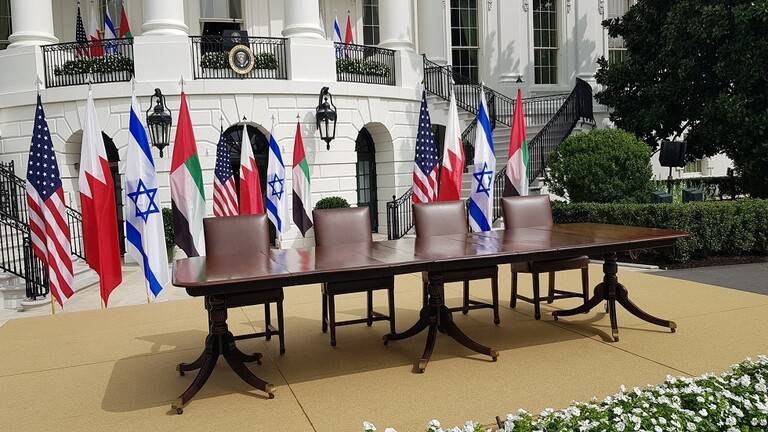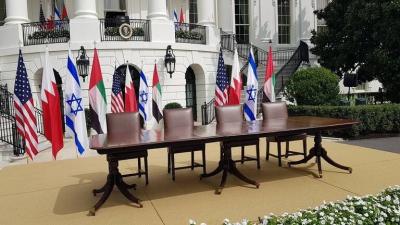A document prepared by the Israeli Ministry of Intelligence revealed that Gulf reconciliation could lead to the normalization of relations between Qatar and Israel, which could bring tangible benefits to Tel Aviv.
The newspaper "Yedioth Ahronoth," in its Hebrew edition, reported today that the Israeli Ministry of Intelligence published a document last week following the announcement of Gulf reconciliation during the Al-Ula summit. The document indicated that settling tensions between Saudi Arabia, the UAE, Bahrain, and Egypt on one hand, and Qatar on the other, could lead to a normalization agreement between Doha and Tel Aviv.
The newspaper noted that Qatar severed its official relations with Israel in 2009 following the war launched on the Gaza Strip in a campaign known as "Operation Cast Lead," but communications between the two parties have continued, including specific coordination regarding the Palestinian issue. According to the Ministry of Intelligence's document, establishing official relations with Qatar would benefit Israel, especially on the external political stage. It is expected that this development could "build a bridge" leading to the Muslim Brotherhood camp, reduce tensions with Turkey, and support security and economic stability in the Gaza Strip.
Additionally, normalization with Qatar could secure Israel’s liquefied natural gas reserves and attract investments in the industrial sector. The Qatari market is expected to become a consumer of Israeli agricultural, pharmaceutical, and water resources, alongside prospects for cooperation in aviation and tourism. Furthermore, normalizing relations between the two parties could open avenues for collaboration in the security field, with Qatar potentially becoming a consumer of Israeli weapons and technology.
Despite this, "Yedioth Ahronoth" pointed out that the document's authors are concerned about the ongoing tensions between the four boycotting countries and Qatar, even after signing the Gulf reconciliation statement at the "Al-Ula" summit in Saudi Arabia on January 5, which indicates the difficulty of completing the normalization process between Israel and Qatar at the present time.
Leaders of the six member states of the Gulf Cooperation Council signed an agreement, which the Saudi Crown Prince stated confirms "our solidarity and Gulf, Arab, and Islamic stability." It is worth noting that Saudi Arabia, the UAE, Bahrain, and Egypt severed relations with Qatar in 2017, accusing it of supporting terrorism, which Qatar denied.
In recent months, Kuwaiti and American mediators have intensified efforts to resolve the crisis. It seems that Kuwaiti mediation efforts had not made significant progress until late last year, when the Trump administration increased pressure on all parties to resolve the crisis, which hindered efforts to rally a coalition of Sunni-led countries against Iran and its proxies.
Trump's son-in-law and senior advisor, Jared Kushner, visited Saudi Arabia and Qatar last December, and attended the Gulf summit that announced the reconciliation.
Commenting on the Gulf reconciliation, Iranian Foreign Minister Mohammad Javad Zarif stated that the agreement to resolve the dispute between Qatar and Saudi Arabia and its allies was a result of "Qatar's courageous resistance to pressure and extortion." Zarif tweeted following the announcement of the agreement: "Congratulations to Qatar for successfully resisting pressure and extortion." He added: "I say to our other Arab neighbors: Iran is not an enemy and does not pose a threat. Enough searching for scapegoats, especially since your foolish supporter (U.S. President Donald Trump) is on his way out."




